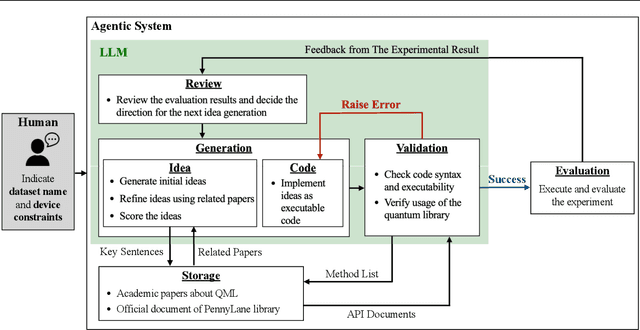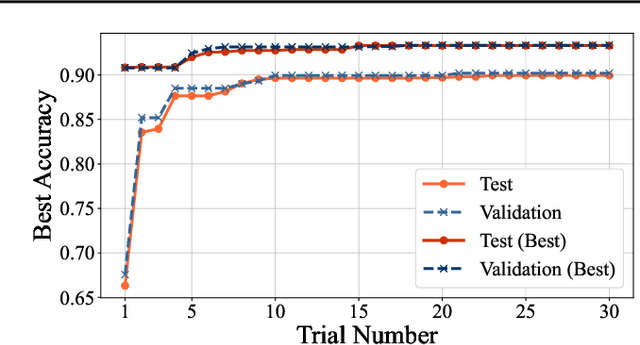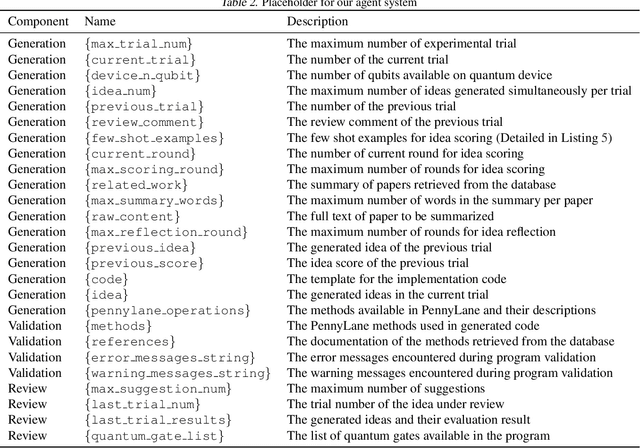Automating quantum feature map design via large language models
Paper and Code
Apr 10, 2025



Quantum feature maps are a key component of quantum machine learning, encoding classical data into quantum states to exploit the expressive power of high-dimensional Hilbert spaces. Despite their theoretical promise, designing quantum feature maps that offer practical advantages over classical methods remains an open challenge. In this work, we propose an agentic system that autonomously generates, evaluates, and refines quantum feature maps using large language models. The system consists of five component: Generation, Storage, Validation, Evaluation, and Review. Using these components, it iteratively improves quantum feature maps. Experiments on the MNIST dataset show that it can successfully discover and refine feature maps without human intervention. The best feature map generated outperforms existing quantum baselines and achieves competitive accuracy compared to classical kernels across MNIST, Fashion-MNIST, and CIFAR-10. Our approach provides a framework for exploring dataset-adaptive quantum features and highlights the potential of LLM-driven automation in quantum algorithm design.
 Add to Chrome
Add to Chrome Add to Firefox
Add to Firefox Add to Edge
Add to Edge